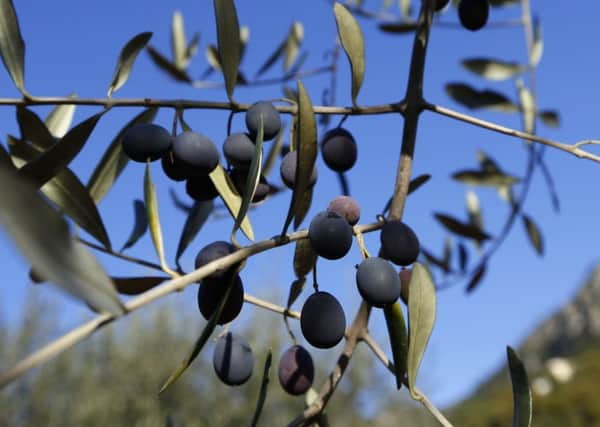French vineyards fear spread of deadly bacteria


The Xylella fastidiosa bacteria has hit olive trees in Lecce, on Italy’s eastern Adriatic seaboard. The European Commission has said one million olive trees in Lecce could be at risk, and has introduced a range of new measures to contain the outbreak.
An estimated 11 million olive trees, some hundreds of years old, grow in the region, which produces up to 30 per cent of Italy’s olive oil. Around 180,000 acres of olive groves are thought to have been hit by the bacteria so far, said industry newspaper, Olive Oil Times.
Advertisement
Hide AdAdvertisement
Hide AdThe bacteria was first observed in 2013, and Italy last year declared its first national emergency for a plant disease and has marked out an emergency zone of some 600,000 acres in Puglia.
Italy is the European Union’s second-largest olive oil producer after Spain, and produces a fifth of the world’s oil. The EU Standing Committee on Plants, Animals, Food and Feed said last month that more stringent measures must be taken by Italy to combat the bacteria, which is spread by the spittlebug, and which dessicates olive trees, preventing water being transported to branches from roots.
The disease has been labelled OQDS, or Olive Quick Decline Syndrome.
Latest plans call for the destruction of all infected plants and the setting up of buffer zones ten miles wide, where all infected plants are removed. France has already banned imports of different kinds of plants that could carry the disease, including products from Puglia. Cutting down and culling of trees has been temporarily suspended as the buffer zones are set up.
The French agriculture ministry had been calling for more measures to contain the spread of the bacteria since January this year and, along with Spain, is pressing for tougher measures to be introduced in Italy.
But the national farmers’ union in Italy, the Confederazione Nazionale Coltivatori Diretti, has said that the French ban was disproportionate.
Last month, a coffee plant infected with the bacteria was detected at a wholesale market at Rungis, outside Paris. It is believed to have entered the country from Central America, via the Netherlands.
In April, culling of olive trees began around Lecce, despite protests from an NGO, Peacelink, which contests whether Xylella fastidiosa, or in fact a set of funghi, cause olive trees to wither and die. The European Food Safety Authority said Xylella fastidiosa has attacked vineyards in California, as well as citrus trees in Brazil.